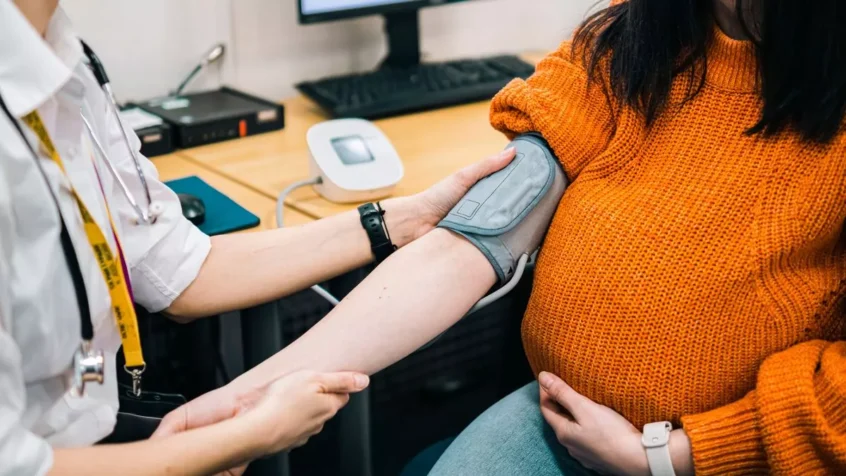Pre-eclampsia is a very real worry for pregnant women. It can lead to major complications, longer hospital stays, stillbirth and neonatal death.
Also known as toxaemia of pregnancy, this condition is classically heralded by high blood pressure, which is why BP is measured at every antenatal clinic visit in order to spot it early and head it off. I remember in the old days the only way we had to bring down the mum’s BP and protect the baby was to admit her to hospital for bed rest. The only sure way of saving mother and baby was to deliver the baby.
The discovery of a blood test to recognise early pre-eclampsia (PET) was a huge step forward, and it has been used since 2021. Led by caution, doctors feel the need to repeat this PIGF (placental growth factor) test. Well, results from the PARROT-2 trial of 1,252 women with suspected preterm PET find there’s no need for repeat PIGF testing in such women. The PIGF blood test detects levels of biomarkers for PET. An abnormal result identifies those women and babies who need intensive surveillance.
A normal result means women can be safely discharged home to continue with routine outpatient antenatal care, cutting down stress and anxiety. But, as Dr Alice Hurrell, first author of a new study from King’s College London, points out: “This large trial has major implications for policy, practice and guidelines. Universal, routine repeat testing, as recommended by some international groups, is not supported by our findings. However, the clinical benefit of a one-off placental growth factor-based test when pre-eclampsia is first suspected, remains clear.”
Professor Lucy Chappell, senior investigator, is calling for action: “With an estimated 5% of all women affected by preterm hypertension in pregnancy (around seven million pregnancies worldwide), this is now a pivotal time to ensure that placental growth factor-based testing can reach widespread implementation across healthcare settings.”
Marcus Green, CEO of charity Action on Pre-eclampsia, is reassuring for mums with PET: “These are really important findings showing that once the first test has been done, there is nothing to be gained from further testing. A single test can assure women with certainty if they are likely or unlikely to get pre-eclampsia.”
Kath Abrahams, Chief Executive of Tommy’s, the largest UK pregnancy and baby loss charity, also welcomed the research. This important study, funded by Tommy’s, is a significant and positive step forwards in the drive to reduce the harm caused by pre-eclampsia.”
We’ve come a long way.

